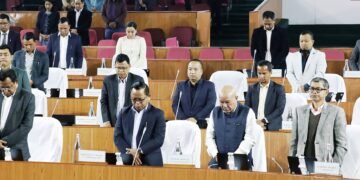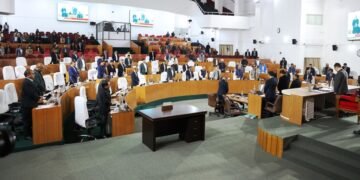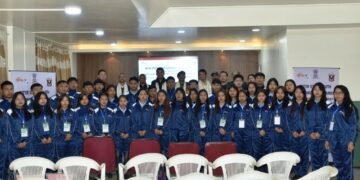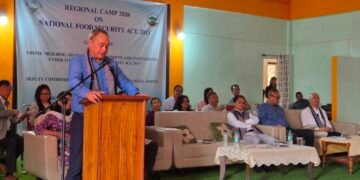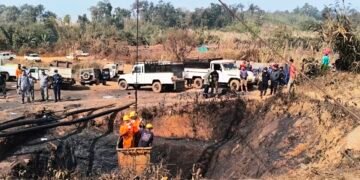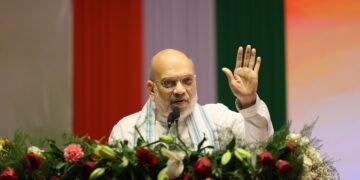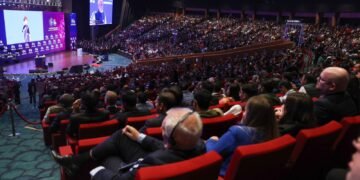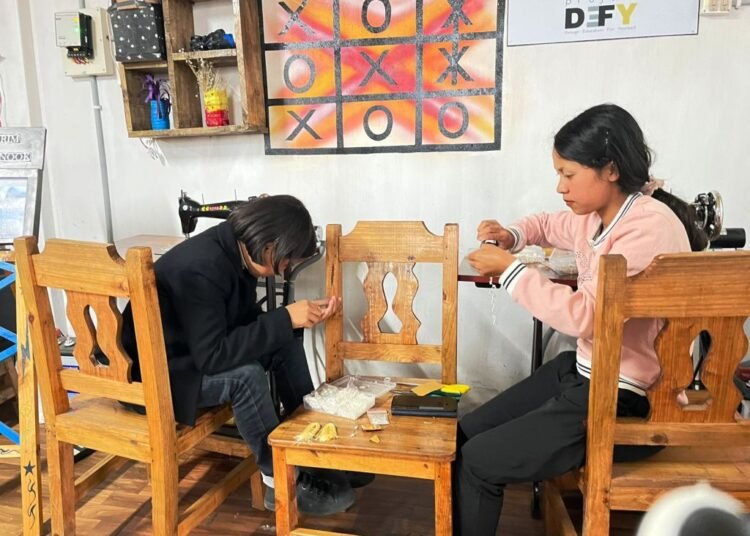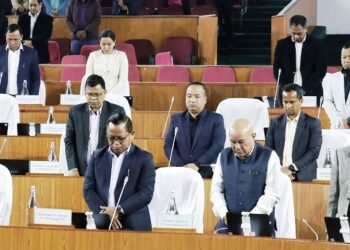What does a well-rounded education mean in this Digital Age? Good reading skills, mathematics, the sciences, arts, and sports are all essential for students when mastered in their school years. But one critical element of learning and development that is often hard to learn in the traditional schooling system – Problem-solving and hands-on, self-driven skill acquisition.
Initiated by the Government of Meghalaya under the leadership of Chief Minister Conrad K. Sangma, twenty Chief Minister’s Youth Centres (CMYC) have been established to supplement traditional schooling and focus on creating open and safe learning spaces in rural communities.
These alternative educational centres are called self-designed learning spaces, designed and co-implemented by Project DEFY and Sauramandala Foundation to introduce experiential ways of learning for the people in rural Meghalaya. Learners of all ages can explore diverse subjects of interest like bakery, carpentry, coding, electronics, sports, arts, music, etc. In due course, they set their own goals and design their own learning modules after choosing a specific subject to pursue. The CMYCs would also incorporate sports and arts as part of the scale-up to be able to reach more people in the community.
Youth in rural areas often find it challenging to gain technological and other skill sets due to limited access to resources otherwise available to the urban crowd. “I never saw a computer in my whole life until I visited the Salesforce Trailblazer Community Lab. I have to climb 1500 steps from my village Diengsong to reach the centre, but what I achieve by coming here is worth more,” says 13-year-old Damelarisha Khongsit, who is learning 3D Printing and the use of Electronics at the Sohrarim lab.
As potential hubs of innovations and entrepreneurial initiatives for the people of these rural communities, these centres will be a great addition to the government’s efforts in fulfilling the goals of the Meghalaya Youth Policy.
The CMYC project helps to implement digital learning solutions and promotes skill development and “self-designed learning” as a core component of education. They can now engage as problem solvers in their communities by using available resources to address their communities’ practical challenges.
Two of the learners, Dari Armynia Diengdoh and Alphaios Nongrum, while sharing their experiences as learners, also hinted at the necessity and applicability of each of the learning projects that they have chosen to pursue – “While we were learning how to make soap, we tried to focus on the common problems of our villagers. These soaps can help acne-prone skin, dry skin, anti-aging, and more. We realise this learning can grow and want to learn more while sharing the knowledge with our community members”.
Piloted under the Government of Meghalaya’s Smart Village Movement initiative as Salesforce Trailblazer Community Lab in Sohrarim and Nongwah, alternate learning spaces are now being scaled to 20 locations as Chief Minister’s Youth Centers (CMYC) across several districts in Meghalaya. In the pilot centres, learners have succeeded in creating innovative projects like the Convertible Chair cum Bed, Water Fountain cum Aquarium, Remote Controlled Car, Barbeque grill using waste, repairing a damaged emergency lamp with the use of electronics, etc.
A day at the centre would guarantee a welcoming bustle, energetic and exciting, with various projects, discussions, and activities happening throughout. CMYCs are not just about rote-learning content but also about trials and self-discovery, a greater understanding of the self and its sense of purpose, which are, perhaps, the most important factors in modern education.
(The writer is a Social Media & Marketing Lead of Smart Village Movement)

